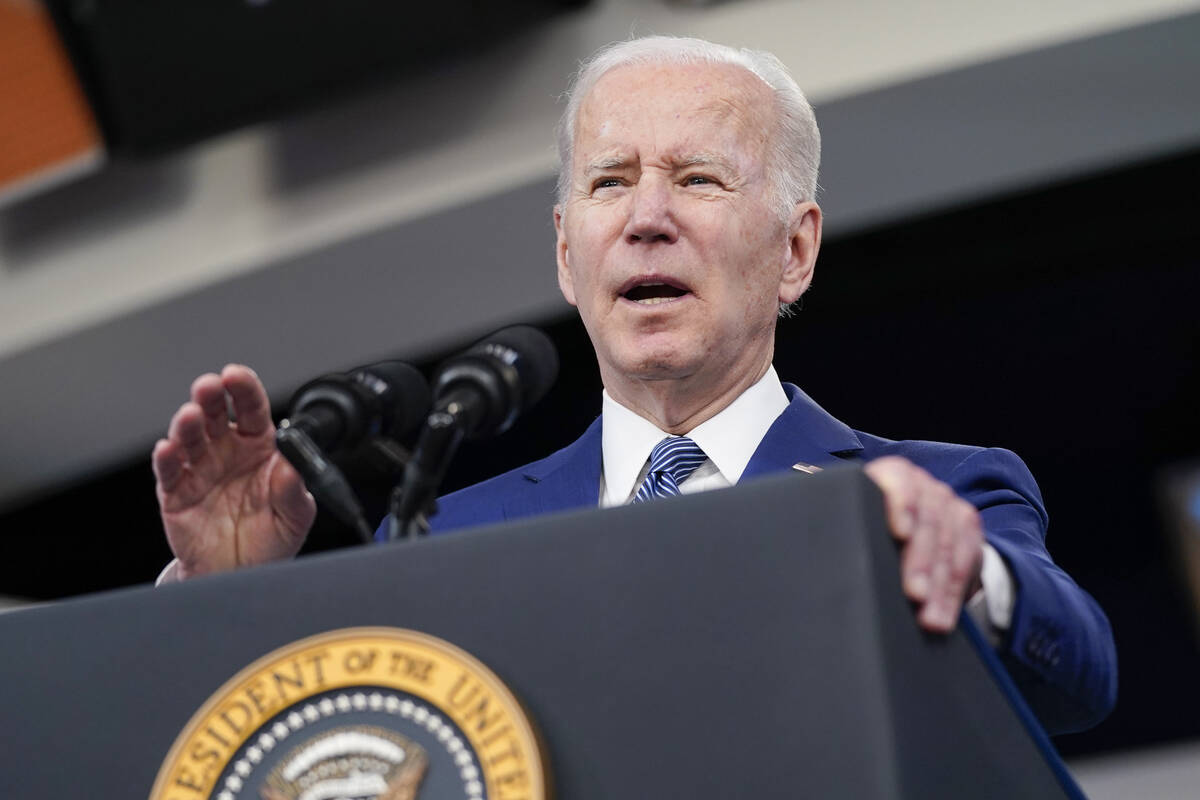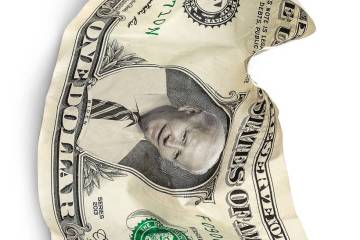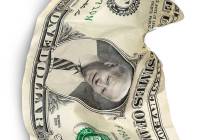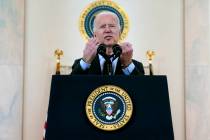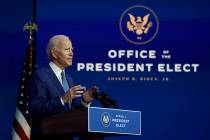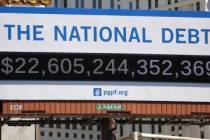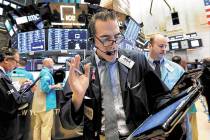RICHARD A. EPSTEIN: Biden and the ghost of Milton Friedman
At the memorial service for Milton Friedman, held at Stanford in 2006, the late Edward Lazear, a distinguished economist in his own right, made this sage observation: “It is amazing how many people can beat Milton Friedman in an argument when he is not in the room.”
One of those people is, apparently, President Joe Biden.
In April 2020, Biden flexed his progressive muscles by touting a robust stimulus package that eventually morphed into the failed Build Back Better program. The thought that his stimulus program might unleash inflation never crossed Biden’s mind. But taking a potshot at Friedman did: “I think there’s going to be a willingness to fix some of the institutional inequities that have existed for a long time. Milton Friedman isn’t running the show any more.”
Pity he isn’t.
Two years later, Biden’s effort to fix “institutional equities” is wrecking the economy. Friedman’s lesson No. 1 to Biden concerns using monetary and fiscal policy as an instrument of reform. Friedman knew that an uncertainty in the value of money, as measured by the rate of inflation, creates massive levels of uncertainty, which in turn, makes it far more difficult for private parties to make long-term contract: Now the dollar no longer functions like a ruler, but as an obstacle. Fixed-priced contracts or loans don’t work well; the value of bonds will tend to go down in real terms; stock prices will become erratic while wages will increase at a lower rate than inflation.
All of these elements are in full view today, but Biden cannot connect the dots. For the one solution that Biden rejects is the one that Friedman stoutly defended: deregulation, which reduces administrative costs and increases the velocity of market transactions. But progressives such as Biden propose the exact opposite: Raise taxes so that the wealthiest corporations pay their “fair share,” which will only raise inflation by taking money out of the hands of those who can invest it wisely and putting it into yet another transfer program.
And so the cycle repeats.
Biden’s worldview corrupts his analysis of other issues. Friedman was a stout defender of antitrust laws to root out abuses of monopoly power. He well understood that monopolies did not just transfer wealth from consumers to producers. They also reduced the level of win-win transactions by blocking any transaction in which the buyer was willing to pay the competitive but not the monopoly price.
But Friedman knew that too much of a good thing could become a bad thing. Like others in the Chicago school of antitrust, he feared that dubious attacks on so-called predatory pricing (i.e., selling goods and services at below cost) could block legitimate competitive behavior. More importantly today, he well understood the dangers of aggressively applying the antitrust laws to mergers, thereby killing off transactions whose efficiency gains often exceeded their potential to restrict competition.
His support for a rule of reason is in the crosshairs of a joint program now undertaken by a dangerous duo of Jonathan Kanter, the overly ambitious assistant attorney general of antitrust, and Lina Kahn, the mischievous head of the Federal Trade Commission. They seek to “strengthen” the merger guidelines to block many deals whose participants have taken great care (as with promises to arbitrate price disagreements) to structure their transactions so as not to “foreclose” competitors in the downstream markets. And Sen. Amy Klobuchar has proposed legislation that would largely stop the ability of large companies to acquire smaller ones, which will undermine the formation of new startsups if their potential sales are blocked by law
Then, of course, no one should ignore Friedman’s famous 1970 article in The New York Times Magazine in which he asserted that, so long as it acted within the law, the corporation’s sole function was to make money for shareholders. Many people have piously denounced Friedman for refusing to see that there are higher values than mere efficiency —which usually degenerates into government support for their favorite interest group. The new ESG movement — E for environmental, S for social and G for governance — seeks to topple his narrow focus.
But in its stead, it creates only hopeless conflicts, as besieged boards struggle to juggle the interests of other stakeholders— employees, suppliers, customers and the public at large — by ad hoc formulas that no one really understands. California’s effort to mandate racial and gender quotas for boards of directors has just been struck down. May the rest of the ESG platform fall apart before it leads to such mindless pursuits as the SEC’s misguided effort to deal with climate change by imposing onerous disclosure requirements of no help to investors.
Add to this motley mix a set of thoroughly punitive tax proposals targeted to the top 0.01 percent, and it’s no longer difficult to understand why inflation is rampant, consumer confidence is down and the president faces sharply negative ratings from a restive public who elected him to end the hijinks of the Trump presidency. What they got is an ignorant and defiant president who seems to embrace the worst policies of Elizabeth Warren and Bernie Sanders. Biden’s set of salami socialist proposals will turn the false siren of institutional equity into a juggernaut capable of ripping the economy apart piece by piece.
To be sure, there are occasional insights from Biden, who on at least one occasion noted that, “Even products as simple as a pencil have to use the wood from Brazil, graphite from India, before it comes together at a factory in the United States. Sounds silly, but that’s literally how it happens.” In so doing, he invoked the famous article I, Pencil, a free-market essay by Leonard Read from 1958 — which, of course, is a metaphor that Milton Friedman warmly embraced.
Richard A. Epstein is a professor at the New York University School of Law, a senior fellow at the Hoover Institution and a distinguished service professor of law emeritus and senior lecturer at the University of Chicago. His Review-Journal column appears quarterly.



